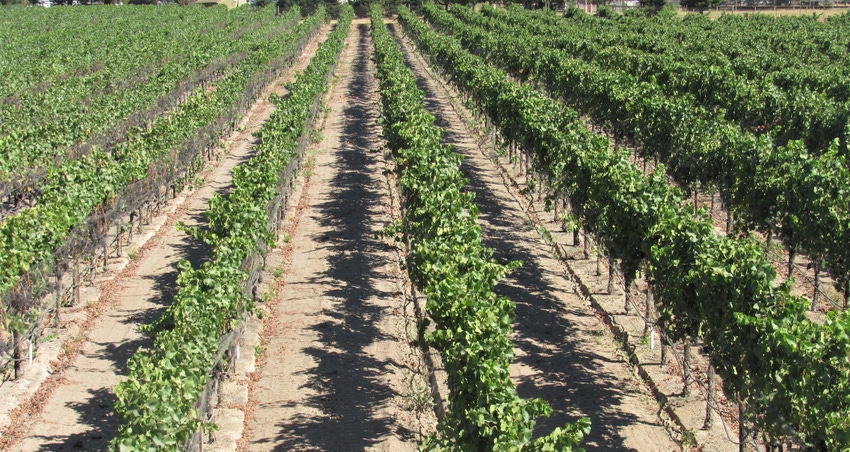
Nearly one-third of California's vineyards representing more than 85 percent of commercial wine production are certified under a statewide sustainability program, according to a new report.
As of December, 149 wineries producing 255 million cases and 2,097 vineyards representing 29 percent of California's wine grape acreage (184,818 acres) were credited by the California Sustainable Winegrowing Alliance for their practices, according to the group's third annual report released Feb. 4.
The Golden State remains the global leader in sustainable winegrowing practices, with one of the most widely adopted sustainable winegrowing programs in the world in terms of both winegrape acreage and case production, according to the alliance.
“The California wine community has shown that sustainable practices and certification can be scaled up and is applicable to vineyards and wineries of all sizes throughout the state," said Allison Jordan, Executive Director of CSWA. "As the fourth largest wine producer in the world, this means significant benefits for the land, natural resources and communities—both now and for future generations."
The report's release coincided with the start of the 26th annual Unified Wine and Grape Symposium, held Feb. 4-6 in Sacramento.
In 2019, CSWA’s third-party certification program had a 50 percent increase in the number of certified vineyards and a 4.2 percent increase in the number of certified wineries, according to the report. View a list of current certified vineyards, wineries and wines here.
Another 15 percent of California vineyard acreage is certified to other state sustainability programs, including Fish Friendly Farming, Lodi Rules, Napa Green and Sustainability in Practice (SIP), the alliance reports. All the programs play an important role in the industry's efforts to produce high quality wine that is environmentally sound, socially equitable and economically feasible, group members said.
The CSWA launched its certification program in 2010 and updated it in 2017. The voluntary program imposes stringent vineyard and winery requirements in the areas of soil health, water and energy conservation, habitat preservation, natural pest control and other aspects of production.
Wines from the 2017 vintage were the first to display a newly developed certification logo, and 972,174 cases of wine from the 2017, 2018 and 2019 vintages are available or coming soon to the marketplace, according to the CSWA.
To view the CSWA's annual report, click here. To read more about sustainable winegrowing requirements for certification, visit the CSWA Certification page.
About the Author(s)
You May Also Like






